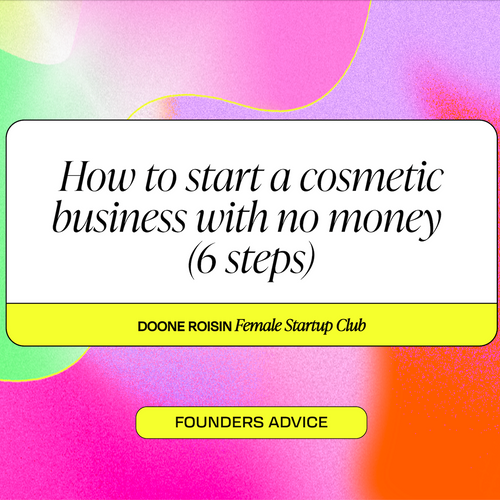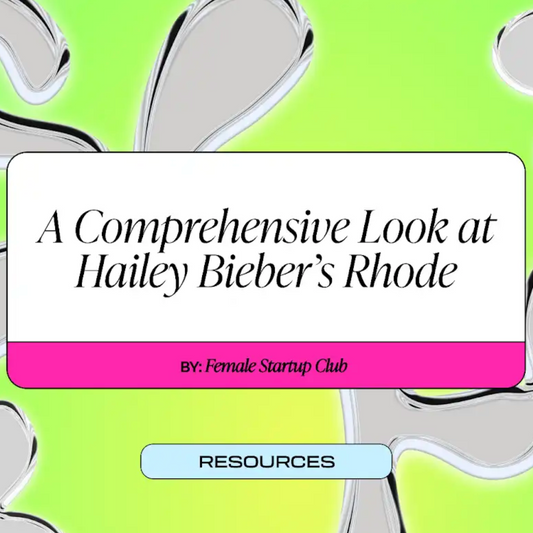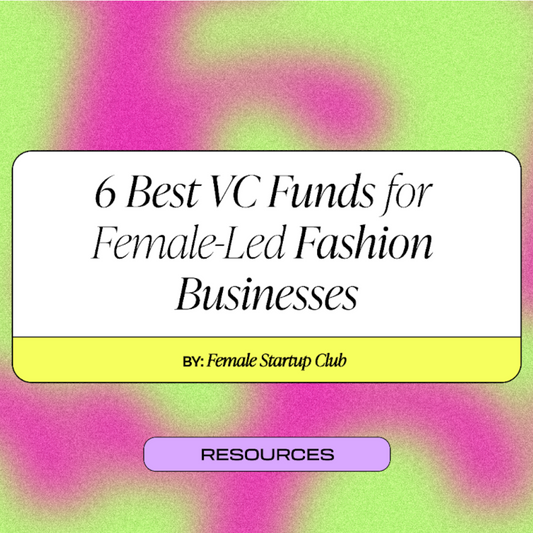Joining me in today’s episode is Melanie Bender, Founding General Manager of Versed Skincare.
Versed launched as the first community-driven mass beauty brand and the first clean skincare line to debut in over 1,850 stores as part of Katherine Power’s lineup of super impressive brands including Who What Wear and Avaline.
Driven by a team of skin experts and a community of 16 million people, Versed’s mission is to make clean products for all, with the planet in mind. They help you find what you need to use and what you need to know—from the right product mix, to ingredient breakdowns (the good and the bad), and late-night chats about those lingering pimples.
We had so much fun recording this episode! We chat about the importance of gathering data to drive forward brand building, why launching into Target was critical to the success of the brand, keeping creativity as a core focus and what’s driving the brands growth right now.

Melanie shared how important data and empathy are in the process of building a beauty brand. For her, data isn’t just a collection of facts—it’s a window into understanding the daily lives, needs, and values of consumers. This deep empathy is what drove Versed to break barriers that often make clean beauty products feel unattainable to many people.
What struck Melanie was that, in certain areas like LA, those who were more affluent had access to all the right products, while others felt left out. They saw the clean beauty movement happening but felt it wasn’t for them due to price points, lack of accessibility, or just not having the time to research ingredients. That gap in access is what inspired Melanie and her team to democratize clean beauty—making sure it’s for everyone and not just a select few.
Price Point and Accessibility—Making Clean Beauty for Everyone
Price is a huge barrier for many when it comes to skincare. Melanie pointed out how Versed worked hard to break down these walls—not just by lowering costs but by making things simple and easy to understand. Clean beauty shouldn’t be rocket science! Versed empowers its customers with knowledge on what products to use, how to layer them, and how they can all work together for each individual’s skin needs. By doing so, they signal that this brand is for you, no matter your budget or skincare expertise.
Melanie explained that one of the key factors behind making high-end products affordable was about choosing the right components. One decision they made early on was to use 100% stock componentry. You know those fancy, custom jars and bottles that luxury brands use? Well, they cost more than you’d think, and in most cases, the packaging costs more than the actual product inside! By skipping the custom molds, Versed could invest more in the formulas that make a real difference in your skin.
Another thing that stood out in their approach was removing “marketing ingredients”—you know, those trendy things like CBD that brands throw into products just to be able to market them, even if they don’t actually have an active benefit. Instead, Versed sticks to tried-and-true ingredients like hyaluronic acid. These are cost-effective, well-researched, and more importantly, they actually work!
Partnership with Target: Reaching More People, Faster
Instead of going the direct-to-consumer route like many brands these days, Melanie and her team chose to partner with Target, and it was a game-changer. Why? Because even though e-commerce is huge, the majority of beauty sales still happen in stores. Consumers want to touch, feel, and trust the products they buy, especially when it’s skincare. Target gave Versed the platform to reach a broader audience more quickly while also ensuring their clean beauty mission was backed by a retail giant that prioritizes transparency and sustainability.
The Power of Community and Influencers
Versed didn’t pay influencers to promote their products—instead, they focused on building authentic relationships. Melanie and her team sent out hundreds of PR packages to influencers they had worked with during the development process. These influencers became ambassadors for the brand, excited to talk about it because they were genuinely invested in its mission and products. It’s all about trust. Consumers are smart—they know when a brand is just trying to sell them something, and Versed made sure they were offering more than just another product. They offered a movement.
Transparency and Integrity in Beauty
One of the biggest values that Versed upholds is transparency—something Melanie admits can be a bit scary in the beauty world. Without airbrushing, without flashy marketing, it’s about letting the products speak for themselves. And, in a world where the beauty industry has been notorious for hiding behind Photoshop and fancy marketing tactics, it’s refreshing to see a brand go the opposite direction. It’s all part of creating a brand that feels like it’s for the people and with the people.
A Reflection on Growth and Challenges
When asked about the key to Versed’s success, Melanie pointed to their values. They built a brand that people believe in, and in turn, that community has become a powerful growth engine. But the journey hasn’t been without its challenges. From navigating the ever-changing retail landscape during the COVID pandemic to supply chain disruptions, it hasn’t always been smooth sailing. Yet, Versed’s commitment to clean beauty, transparency, and accessibility has only grown stronger through these obstacles.
Melanie Bender and her team at Versed are changing the beauty industry, one accessible, clean product at a time. What started as a mission to democratize skincare has turned into a movement that prioritizes trust, community, and transparency over everything else. And that’s what sets Versed apart in today’s beauty landscape—real products for real people.



